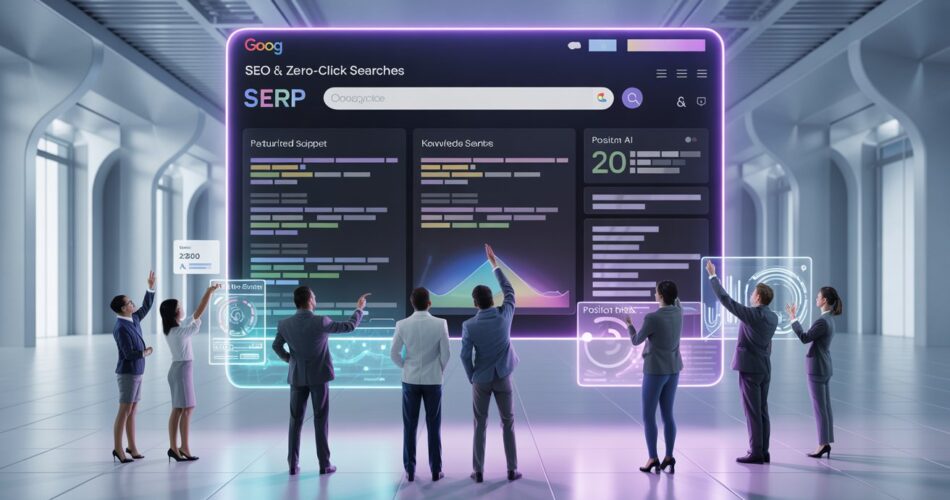Introduction: The Rise of Zero-Click Searches
What Are Zero-Click Searches?
The Impact of Zero-Click Searches on SEO
Adapting Your SEO Strategy for the Zero-Click Era
1. Understanding User Intent: The Core of Modern SEO
2. Optimizing for Featured Snippets and Rich Results
3. Leveraging Schema Markup for Enhanced Visibility
4. Embracing Answer Engine Optimization (AEO)
5. Creating Comprehensive and Authoritative Content
6. Focusing on Brand Building and Direct Traffic
Common Questions About Zero-Click Searches
Conclusion: Thriving in a Zero-Click World
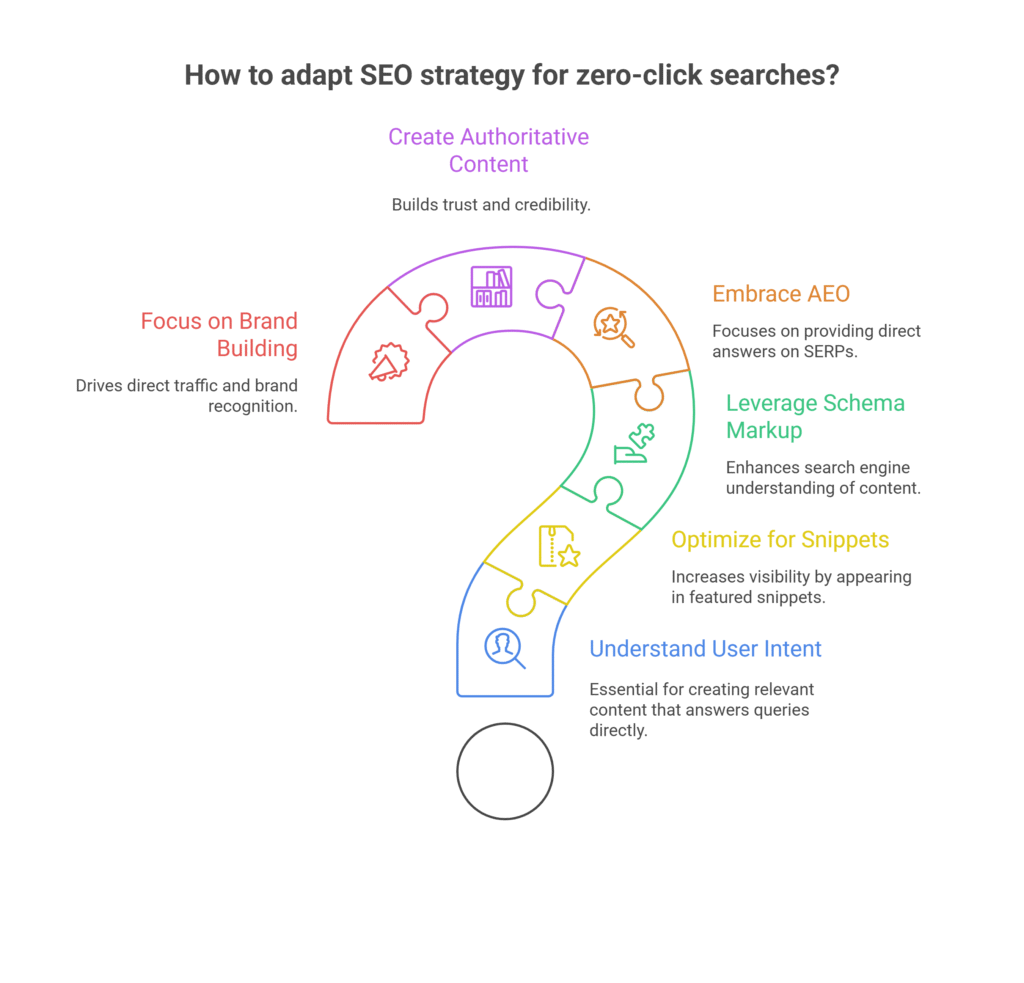
In the ever-evolving landscape of search engine optimization (SEO), a significant shift has taken place: the rise of zero-click searches. Once, the primary goal of SEO was to drive users to your website. Today, a growing number of searches conclude directly on the search engine results page (SERP), with users finding their answers without ever clicking on a link. This phenomenon, known as a zero-click search, presents both challenges and opportunities for businesses and content creators.
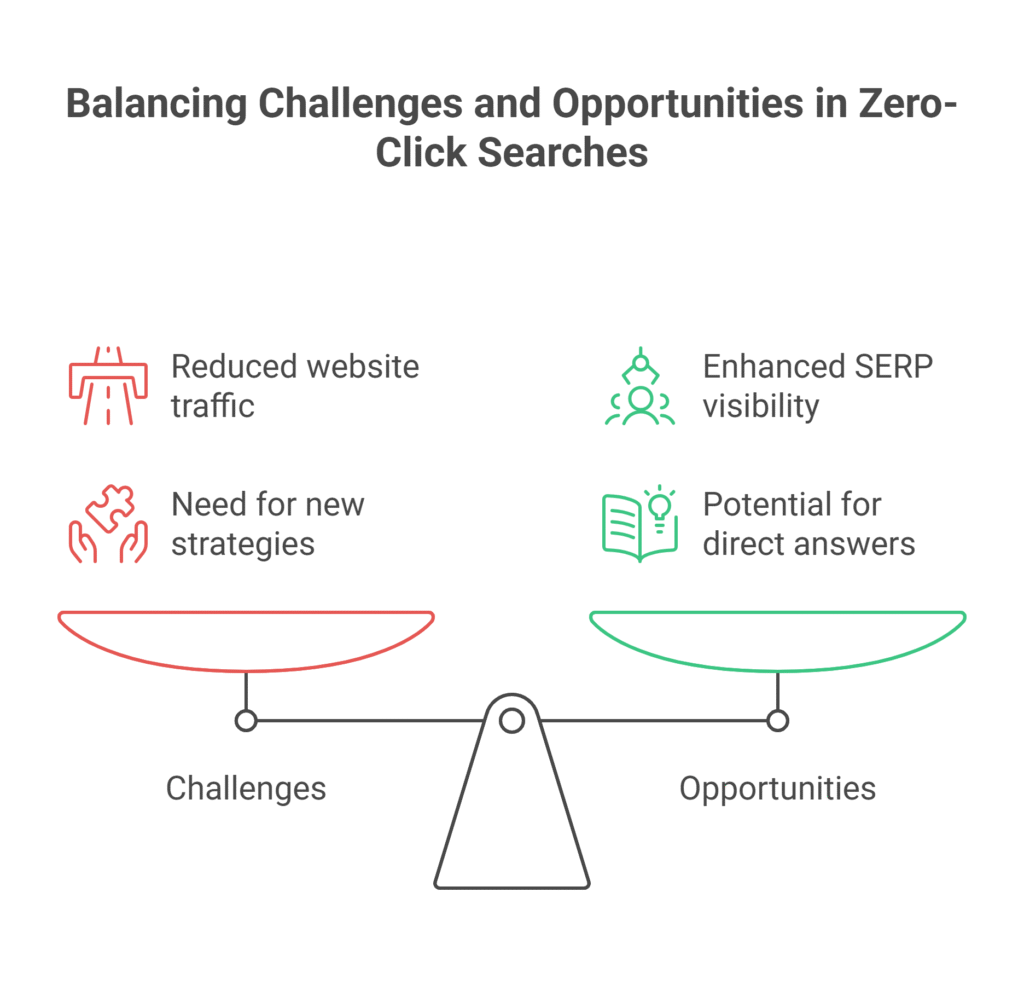
What Are Zero-Click Searches?
A zero-click search occurs when a user’s query is answered directly on the SERP, eliminating the need to visit a website. Google, in its continuous effort to provide immediate and relevant information, has increasingly integrated various SERP features that deliver instant answers. These include:
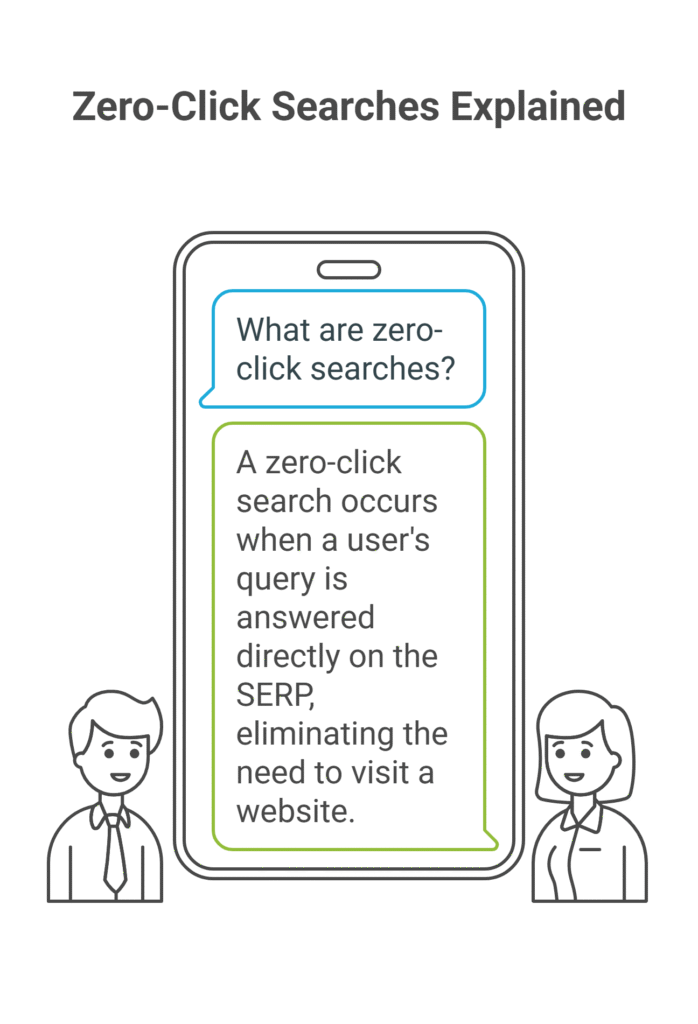
- Featured Snippets (Position Zero): Concise answers extracted from a webpage and displayed prominently at the top of the SERP.
- Knowledge Panels: Information boxes that appear on the right-hand side of the SERP for entities like people, places, organizations, or things, drawing data from various sources.
- AI Overviews (Search Generative Experience – SGE): AI-generated summaries that provide direct answers to complex queries, often synthesizing information from multiple sources.
- Direct Answers: Simple, factual answers displayed directly on the SERP for queries like
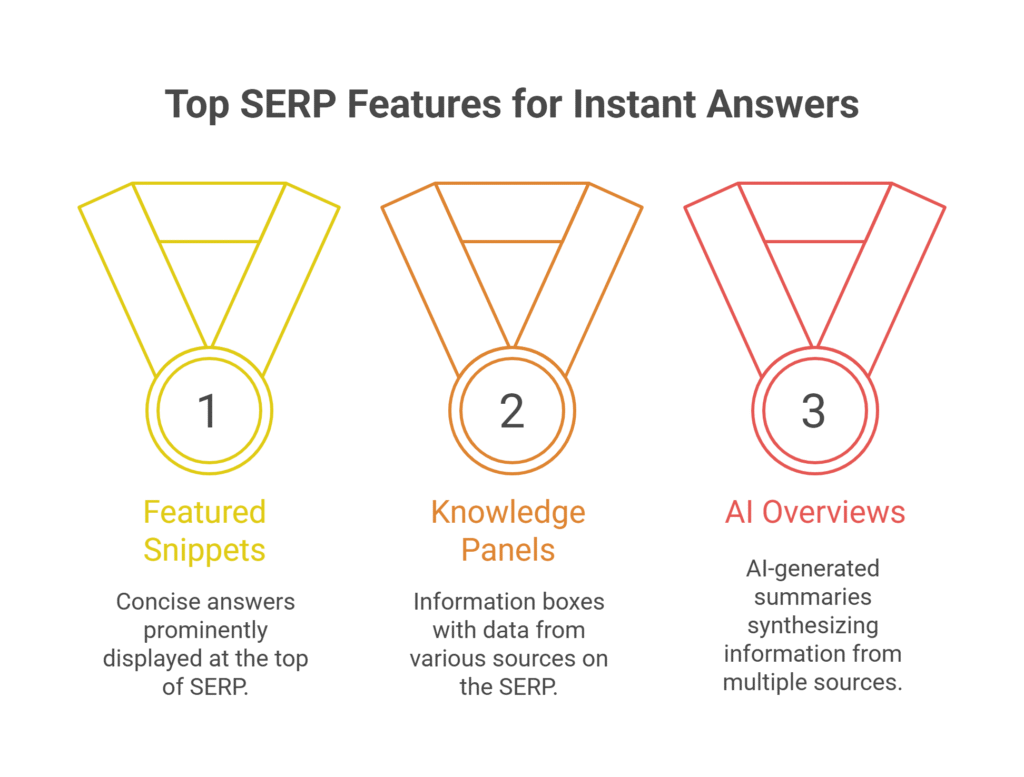
weather forecasts, time, or simple calculations.
- Local Packs: For location-based queries, a map and a list of local businesses with ratings and contact information.
- People Also Ask (PAA) Boxes: A dynamic list of related questions that expand to reveal short answers, often leading to further zero-click interactions.
According to recent studies, the prevalence of zero-click searches is significant and growing. In 2024, approximately 58.5% of Google searches in the US and 59.7% in the EU ended without a click. This trend is even more pronounced on mobile devices, with over 75% of searches resulting in no clicks. This shift has led to a reduction in organic web traffic by an estimated 15-25% for many businesses.
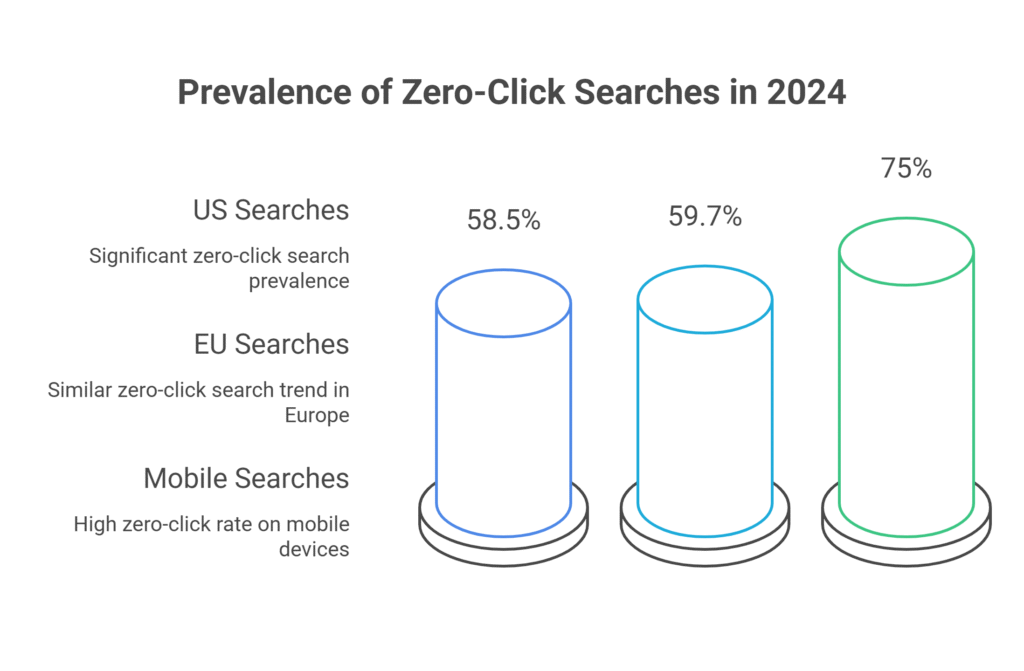
The Impact of Zero-Click Searches on SEO
The rise of zero-click searches fundamentally alters the traditional SEO landscape. While organic visibility remains crucial, the goal is no longer solely about driving clicks to your website. Instead, it’s about providing immediate value and establishing authority directly within the SERP. The impact can be summarized as follows:
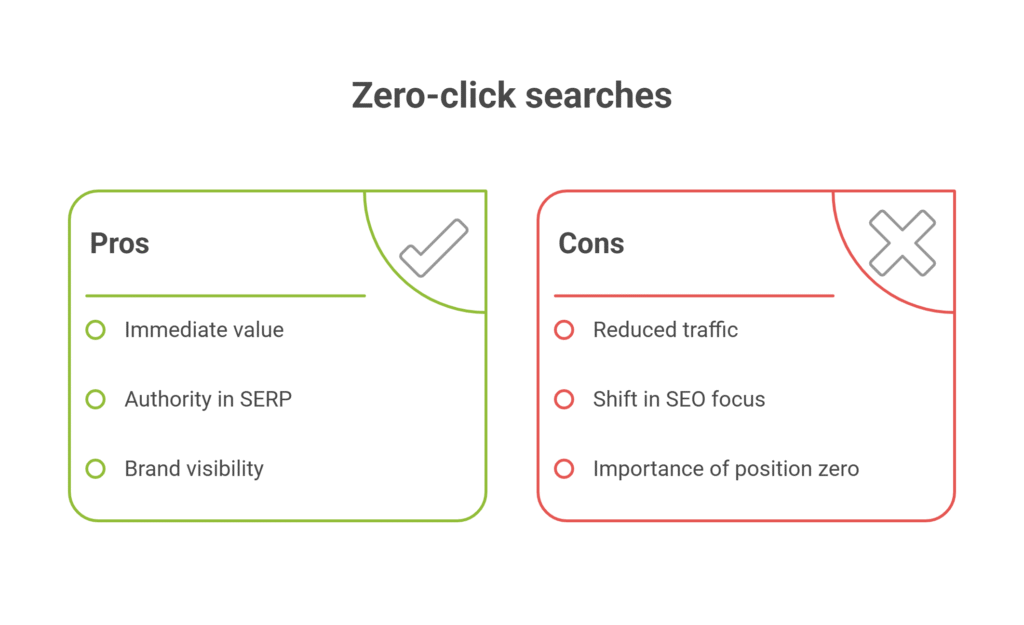
- Reduced Organic Traffic: The most direct consequence is a potential decrease in website traffic, as users get their answers without visiting your site.
- Increased Brand Visibility (without clicks): Even without a click, appearing in featured snippets or knowledge panels significantly boosts brand visibility and recognition.
- Shift in SEO Focus: SEO strategies must evolve from purely click-driven metrics to a more holistic approach that prioritizes answering user queries directly and establishing expertise.
- Importance of ‘Position Zero’: The coveted ‘position zero’ (featured snippet) becomes the new prime real estate, offering unparalleled visibility.
- Data-Driven Content Creation: Understanding user intent and the types of questions users ask becomes paramount for creating content that Google can easily extract and display.
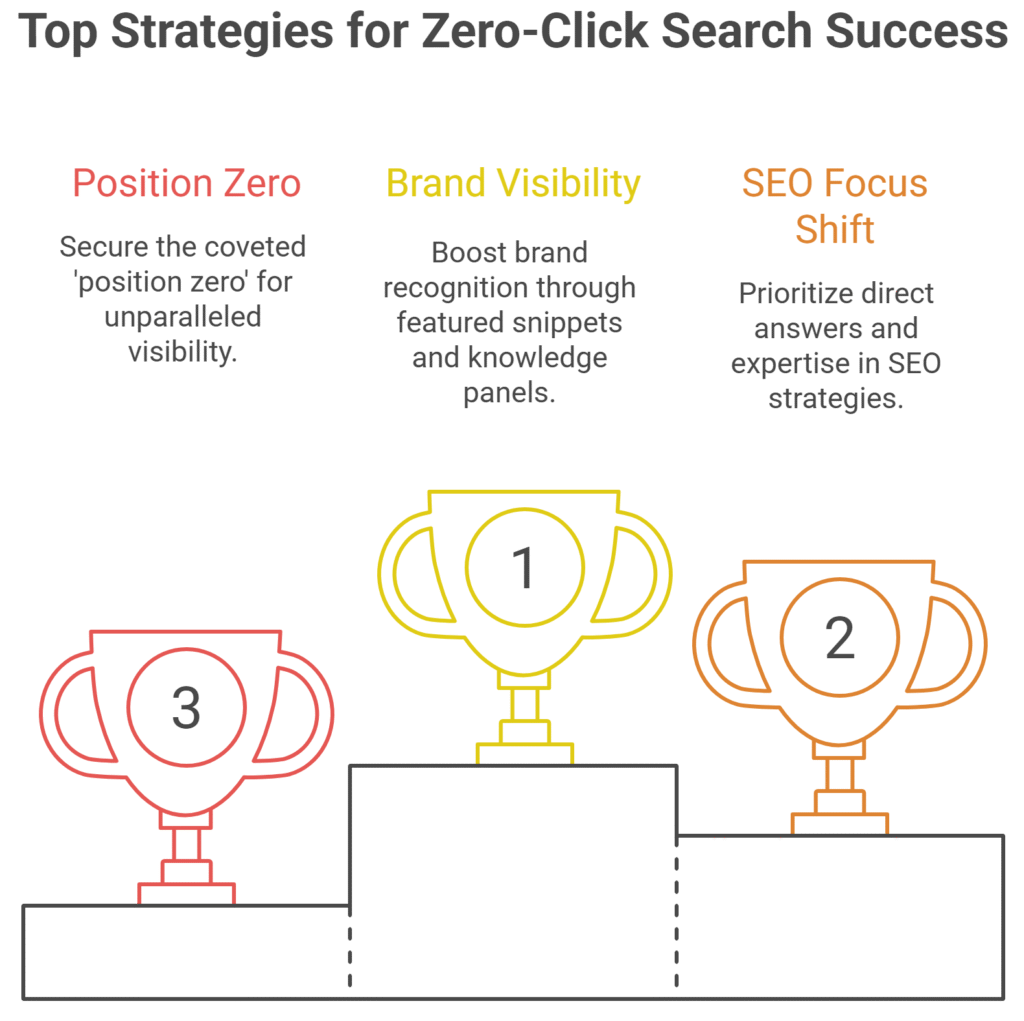
Adapting Your SEO Strategy for the Zero-Click Era
Winning in a zero-click world requires a strategic pivot. It’s not about fighting the trend, but embracing it and optimizing your content to be the source Google chooses for its direct answers. Here are key strategies:
1. Understanding User Intent: The Core of Modern SEO
At the heart of effective zero-click SEO is a deep understanding of user intent. Why is someone searching for a particular query? What information are they truly seeking? User intent can generally be categorized into:
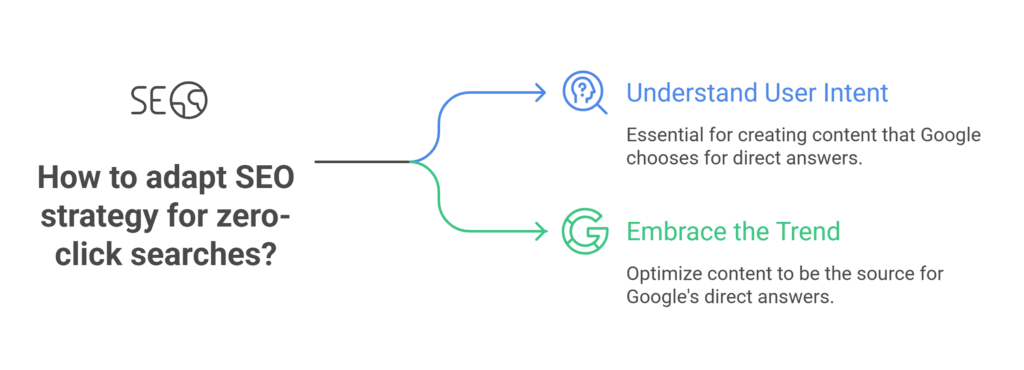
- Informational: Users seeking information (e.g., “how to tie a tie,” “what is photosynthesis”). These are prime candidates for featured snippets and direct answers.
- Navigational: Users looking for a specific website or brand (e.g., “Facebook login,” “Amazon”).
- Transactional: Users intending to make a purchase or complete an action (e.g., “buy running shoes,” “pizza delivery near me”).
- Commercial Investigation: Users researching products or services before making a purchase (e.g., “best laptops 2025,” “reviews of iPhone 17”).
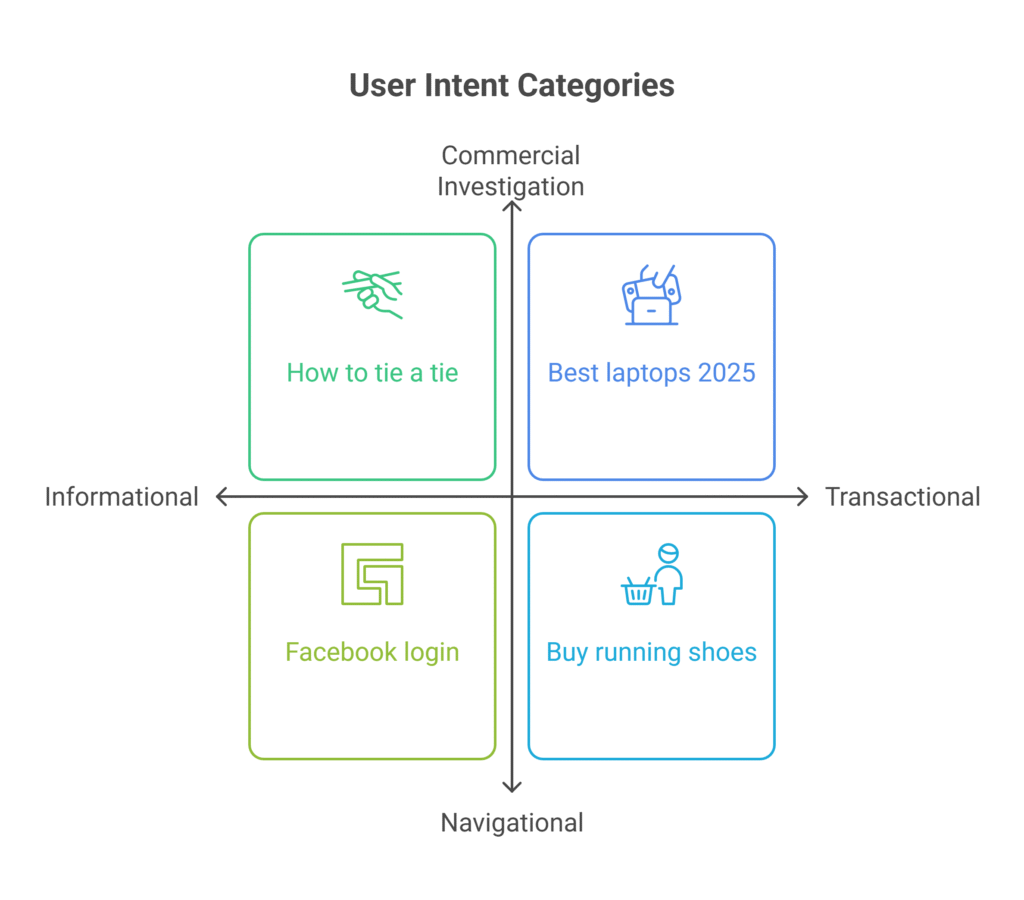
To optimize for zero-click searches, focus heavily on informational and commercial investigation queries. Conduct thorough keyword research that goes beyond simple keywords to uncover the underlying questions and needs of your target audience. Tools like Google’s ‘People Also Ask’ section, related searches, and keyword research platforms can help identify these opportunities.
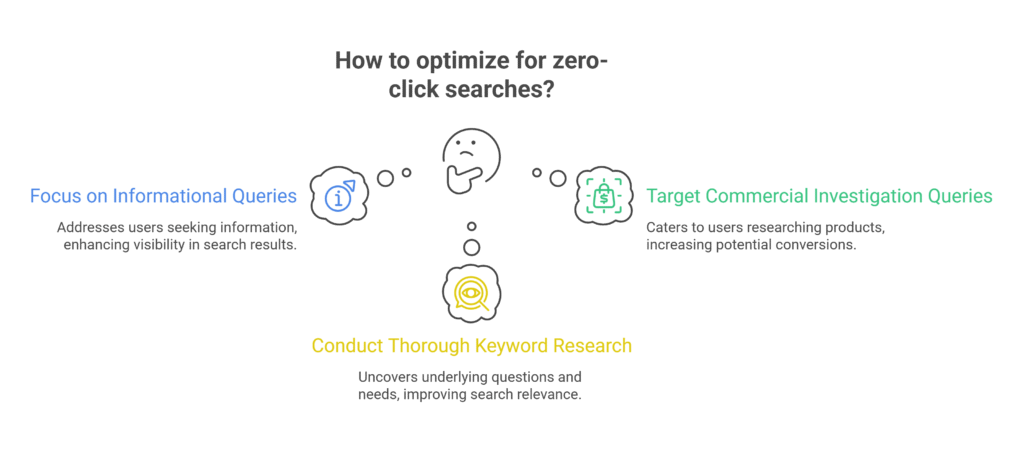
2. Optimizing for Featured Snippets and Rich Results
Featured snippets are the most prominent zero-click feature. To increase your chances of ranking for them:
- Provide Concise, Direct Answers: Answer common questions clearly and concisely, ideally within 40-50 words, at the beginning of your content.
- Use Question-Based Headings: Structure your content with clear headings that directly address potential user questions (e.g., “What is a Zero-Click Search?”).
- Format for Scannability: Use lists (numbered or bulleted), tables, and short paragraphs to make your content easy for Google to parse and extract.
- Target Long-Tail Keywords: These often represent specific questions that are more likely to trigger featured snippets.
- Maintain High-Quality Content: Google prioritizes authoritative, trustworthy, and well-written content. Ensure your content is comprehensive, accurate, and provides genuine value.
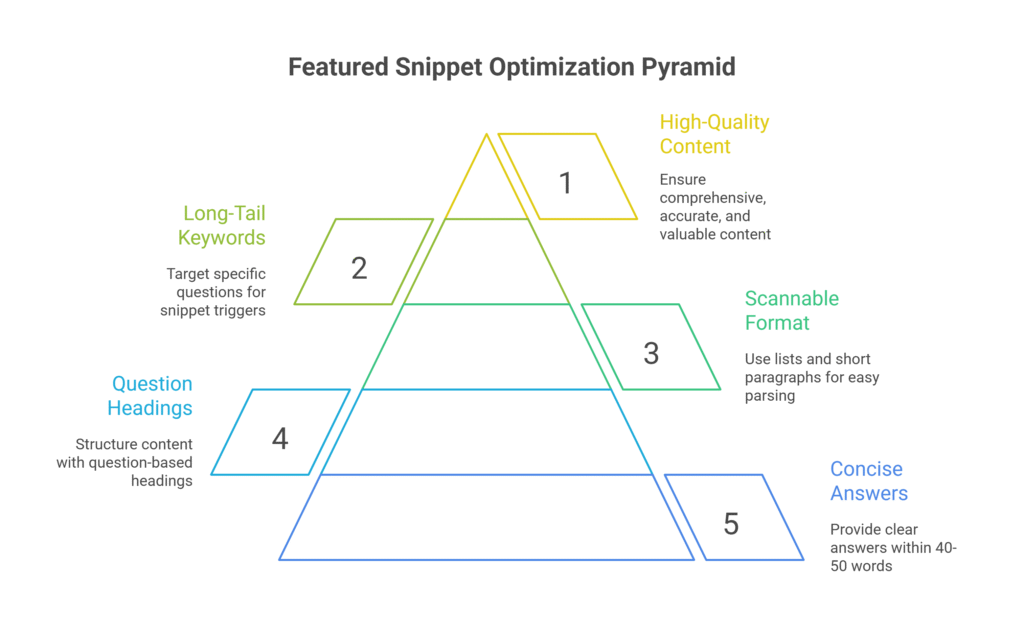
Rich results, powered by structured data, also enhance visibility. These include star ratings, product availability, recipes, and event information, making your listing more appealing even without a direct click.
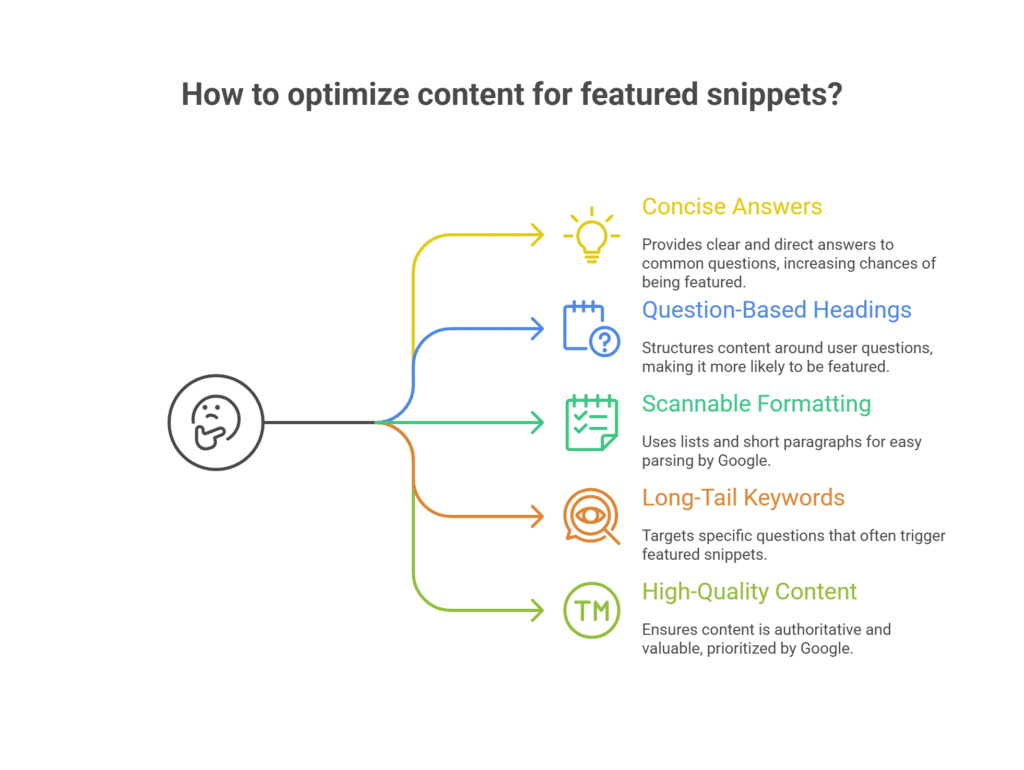
3. Leveraging Schema Markup for Enhanced Visibility
Schema markup (structured data) is code that helps search engines better understand the content and context of your website. While it doesn’t directly guarantee a featured snippet, it significantly increases your chances of appearing in rich results and helps Google categorize your content more effectively. Implement relevant schema types such as:
- FAQPage Schema: For pages with frequently asked questions and answers.
- HowTo Schema: For step-by-step guides.
- Article Schema: For blog posts and news articles.
- Product Schema: For e-commerce product pages.
- LocalBusiness Schema: For local businesses to appear in local packs.
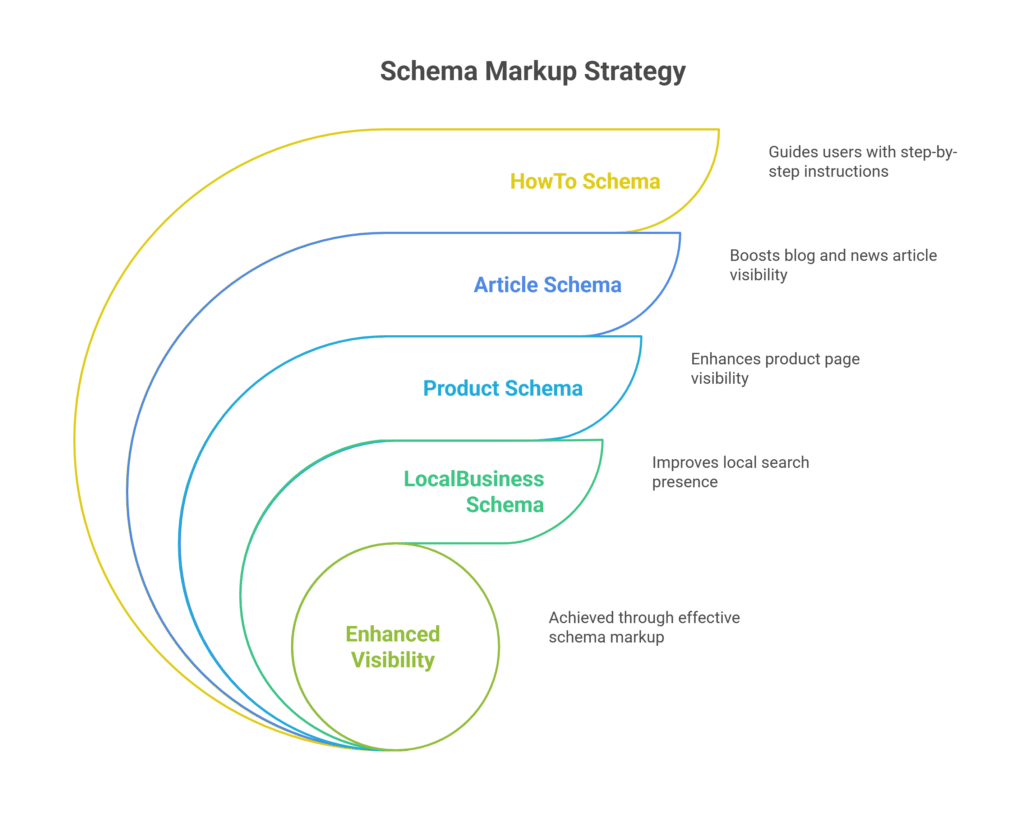
Properly implemented schema markup provides Google with explicit clues about your content, making it easier for their algorithms to display your information in various zero-click formats.
4. Embracing Answer Engine Optimization (AEO)
With the advent of AI-powered search experiences like Google’s AI Overviews, the concept of Answer Engine Optimization (AEO) is gaining prominence. AEO focuses on optimizing your content to be directly consumed and synthesized by AI models to provide answers. This involves:
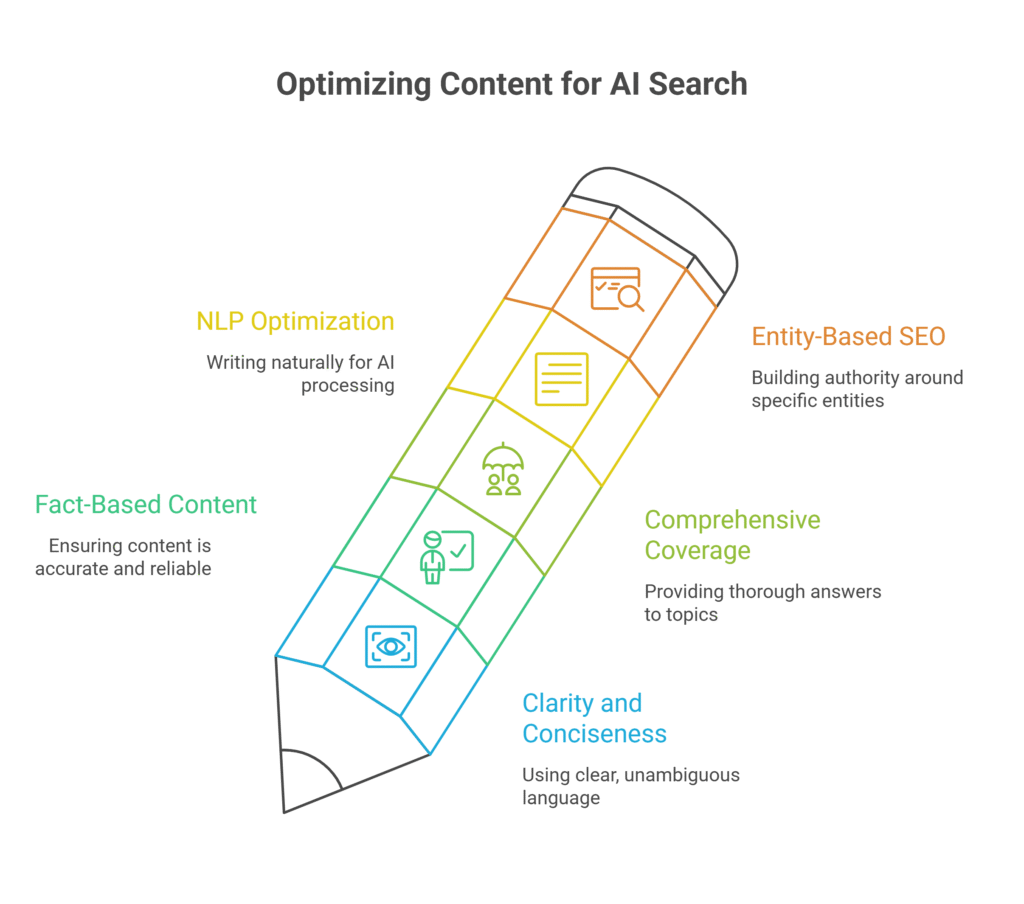
- Clarity and Conciseness: AI models thrive on clear, unambiguous language. Avoid jargon and write in a straightforward manner.
- Fact-Based Content: Ensure your content is factually accurate and well-supported, as AI models prioritize reliable information.
- Comprehensive Coverage: Provide thorough answers to a topic, covering all relevant sub-questions and related concepts.
- Natural Language Processing (NLP) Optimization: Write naturally, as if you were explaining a concept to a person, rather than stuffing keywords. This aligns with how AI models process language.
- Entity-Based SEO: Focus on building authority around specific entities (people, places, things, concepts) rather than just keywords. This helps AI models understand the relationships between different pieces of information.
5. Creating Comprehensive and Authoritative Content
In a zero-click world, content quality and authority are more important than ever. Google aims to provide the best answer, not just an answer. To achieve this:
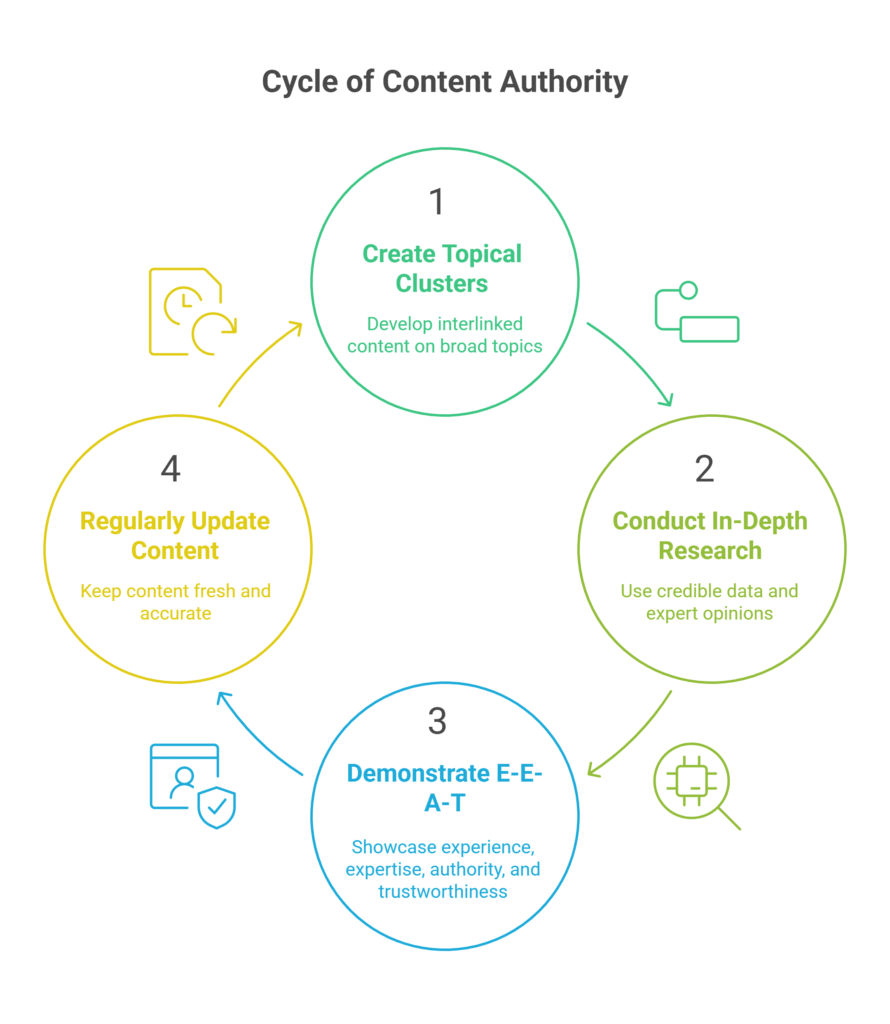
- Become a Topical Authority: Create clusters of interlinked content that thoroughly cover a broad topic, establishing your website as a go-to resource.
- In-Depth Research: Back your claims with credible data, statistics, and expert opinions. Cite your sources.
- E-E-A-T (Experience, Expertise, Authoritativeness, Trustworthiness): Demonstrate these qualities in your content. Showcase your experience, highlight your expertise, build authority through backlinks and mentions, and ensure your site is trustworthy.
- Regularly Update Content: Keep your content fresh and accurate. Outdated information is less likely to be featured.
6. Focusing on Brand Building and Direct Traffic
While zero-click searches may reduce organic clicks, they can still contribute to brand awareness. When your brand consistently appears in direct answers, it builds trust and recognition. Encourage direct traffic by:
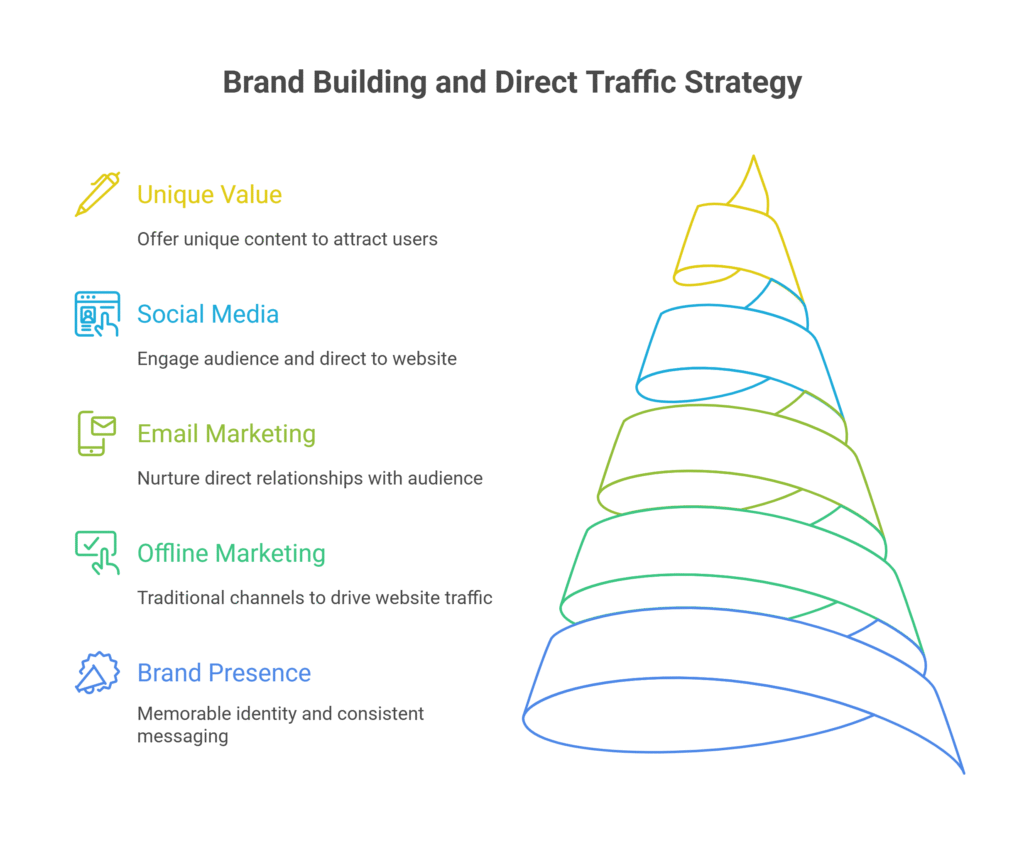
- Strong Brand Presence: Develop a memorable brand identity and consistent messaging across all platforms.
- Offline Marketing: Drive users directly to your website through traditional marketing channels.
- Email Marketing: Build an email list and nurture direct relationships with your audience.
- Social Media Engagement: Use social media to engage with your audience and direct them to your website for deeper content.
- Unique Value Proposition: Offer something unique that encourages users to seek out your website specifically, even if they found an initial answer on Google.
Common Questions About Zero-Click Searches
Here are some frequently asked questions about zero-click searches and their implications:
Q: Are zero-click searches bad for my website?
A: Not necessarily. While they may reduce direct organic traffic, they increase brand visibility and establish your authority. For informational queries, providing the answer directly can position you as a trusted source, potentially leading to future direct visits or conversions.
Q: How can I measure the success of my zero-click SEO efforts?
A: Traditional metrics like organic clicks are still important, but you’ll also need to track impressions, SERP feature appearances (featured snippets, knowledge panels), brand mentions, and direct traffic. Tools like Google Search Console can provide insights into your SERP performance.
Q: Will AI Overviews completely replace traditional search results?
A: It’s unlikely. While AI Overviews are becoming more prominent, they are designed to complement, not entirely replace, traditional search results. For complex queries or those requiring deeper investigation, users will still need to click through to websites.
Q: Should I still focus on traditional SEO?
A: Absolutely. Traditional SEO practices like keyword research, technical SEO, and link building remain foundational. Zero-click SEO is an extension of these practices, focusing on optimizing for new SERP features.
Q: How quickly can I see results from zero-click SEO?
A: SEO is a long-term strategy, and zero-click optimization is no different. Results can vary depending on your niche, competition, and the quality of your implementation, but consistent effort over several months is typically required.
Conclusion: Thriving in a Zero-Click World
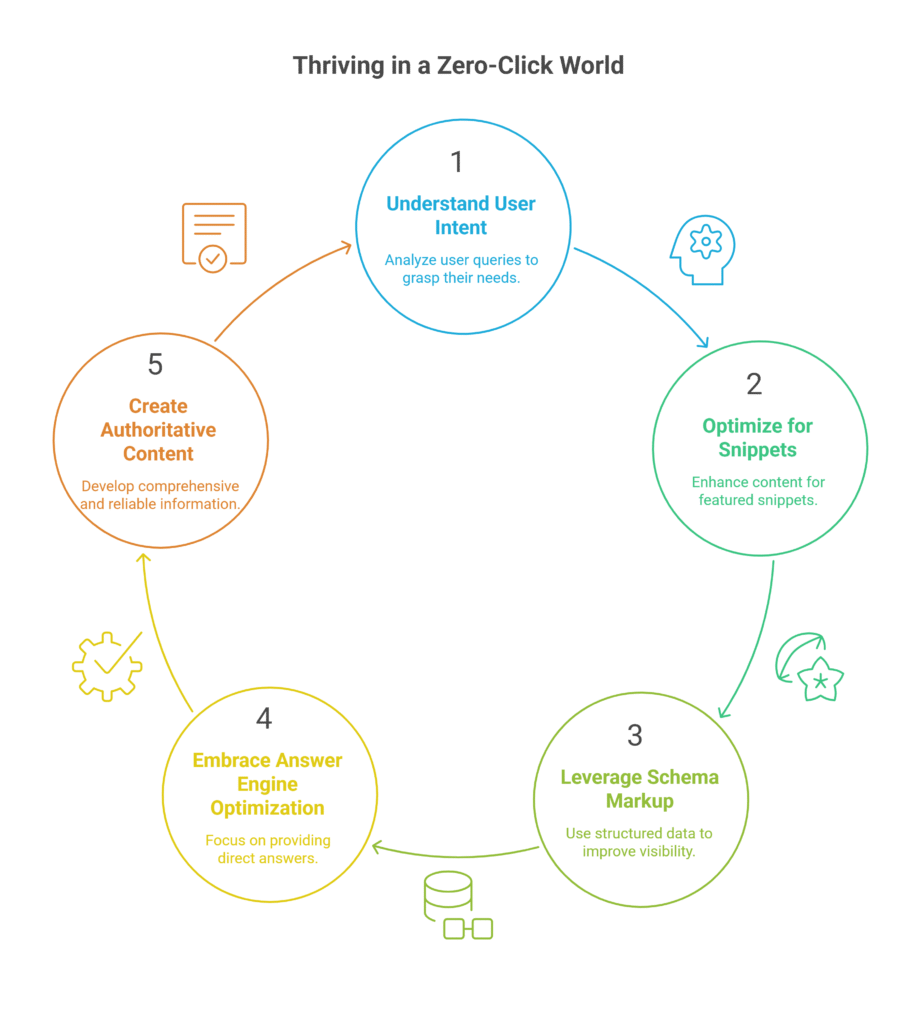
The landscape of search is continually evolving, and zero-click searches are a testament to Google’s commitment to providing instant answers. For businesses and content creators, this shift is not a threat but an opportunity to refine their SEO strategies. By deeply understanding user intent, optimizing for featured snippets and rich results, leveraging schema markup, embracing Answer Engine Optimization, and creating comprehensive, authoritative content, you can not only survive but thrive in a zero-click world. The goal is to become the definitive source of information, ensuring that even when the answer is on Google, your brand is the one providing it.

